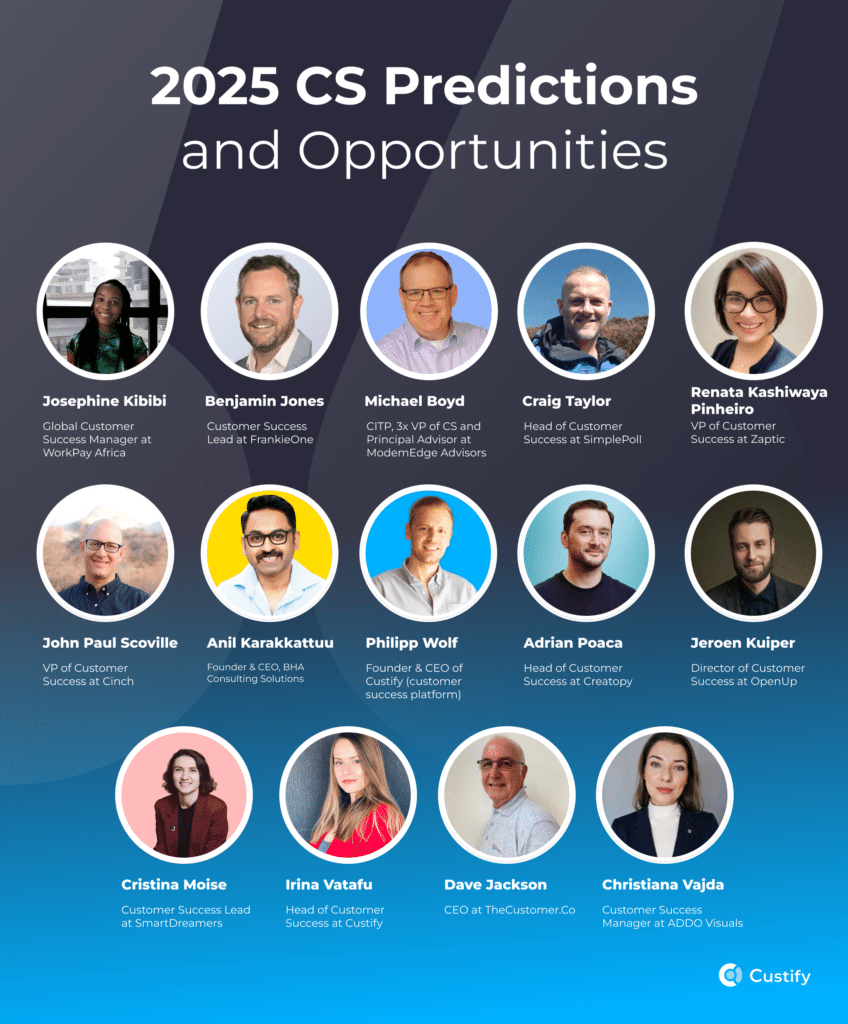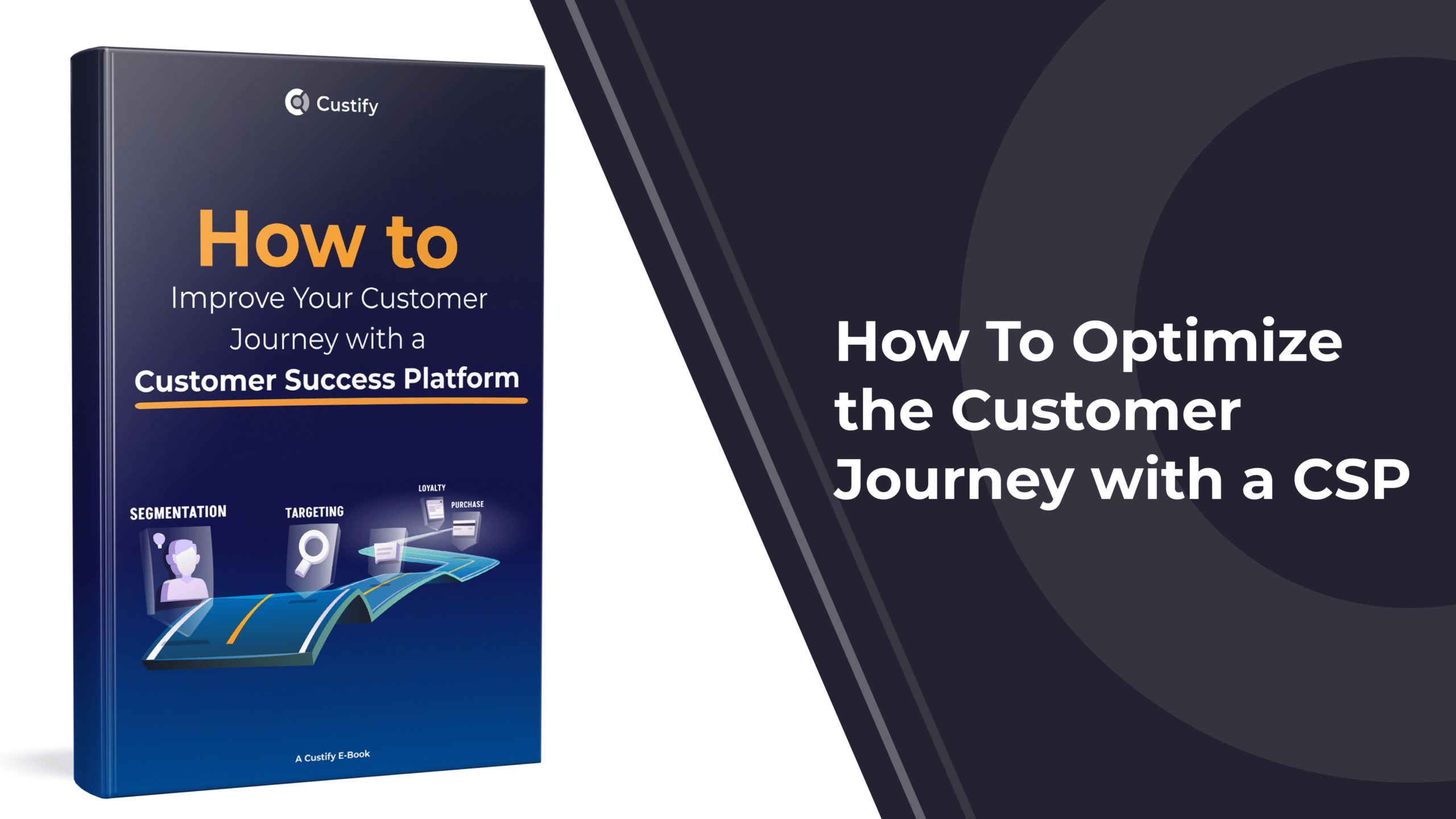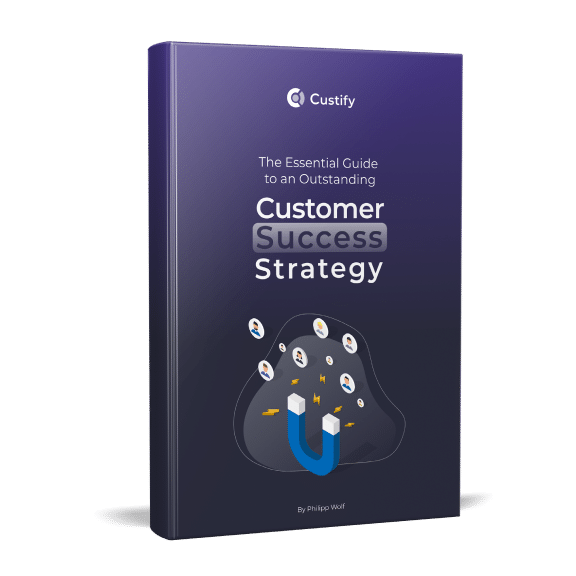Customer success pros, let’s be honest—this field never stays still for long. Every year brings new challenges, innovations, and opportunities that push us to adapt and grow. So, what’s next? What are the customer success trends and shifts that will define 2025?
We asked some of the brightest minds in CS—seasoned leaders and experts at the forefront of the industry—to share their industry predictions for the year ahead.

Ready to dive into the predictions shaping the future of CS? Let’s go.
1. AI: The Game-Changer in Customer Success
Artificial intelligence continues to be a transformative force in CS, with experts highlighting its role in personalization, efficiency, and proactive customer engagement.

Josephine Kibibi, Global Customer Success Manager at WorkPay Africa, predicts:
“AI tools will help CS teams personalize interactions, predict churn more accurately, and spot upsell opportunities. Additionally, AI-driven knowledge bases will make self-service easier, providing customers with quick answers to common questions and reducing the need for one-on-one support.”
Benjamin Jones
“In 2025 we’ll see a deeper integration of AI and automation, not to replace human connection but to amplify it. The focus will shift even more towards customer retention and growth, with CS leaders expected to prove value through tangible business outcomes like CLV. Those who can balance technology and relationships will drive the next evolution of CS.”
Michael J. Boyd
“AI, AI, AI (or at least some automation) – CSMs still have more work than capacity and capability. As CS leaders, we need to help our teams harvest and reuse knowledge better and speed up the time to value/resolution/delivery to the customer. If someone has created the answer once, we should not have to spend effort to create it again.”
Our Take:
The integration of AI is no longer optional; it’s the key to unlocking scalable, personalized Customer Success. Tools that harness AI for predictive insights, churn prevention, and hyper-personalized engagement will set CS teams apart. However, the balance between automation and the human touch remains critical—AI should amplify, not replace, authentic relationships.
2. In-App Customer Success: The Overlooked Opportunity
Craig Taylor
“Personally, I’d like to see a wider appreciation and application of providing ‘in-app’ Customer Success. This seems to be something that is difficult to achieve via most CSP’s and is therefore somewhat neglected.”
Our Take:
In-app Customer Success has the potential to bridge the gap between proactive and reactive customer support. By embedding CS directly into the user’s workflow, companies can provide immediate help, timely nudges, and tailored onboarding experiences.
However, the challenge lies in execution. Few platforms truly excel at integrating CS features—such as real-time analytics, guided tutorials, and interactive help widgets—seamlessly into the app interface. The key to success here will be investing in tools that prioritize user behavior insights and ensuring CS teams collaborate closely with product teams to make these experiences both effective and intuitive.
3. Proving Value and Aligning Metrics
Renata Kashiwaya Pinheiro
“Stronger emphasis to prove value and ROI to retain customers will lead to CS and revenue teams converging more. CS metrics will focus more on outcomes and business impact vs activity & usage.”
Our Take:
As CS becomes a revenue-driving function, aligning customer success metrics with business outcomes is a must. The days of tracking vanity metrics are over—CS teams must prove their impact through measurable ROI.
4. Collaboration, Relationships, and Streamlining
Michael J. Boyd
a. “Post-sales teams will collaborate more often and more targeted – specifically getting smoother at engaging the right post-sales (CS/PS/Support/SME) expert to solve the specific issue quickly, before heading off to the next one.”
b. “Relationships still matter – people buy and engage from those they trust. You cannot build credibility and trust from just an email campaign. Collaboration and automation may help us nurture our relationships more efficiently, but we still need to invest (just enough) time to get to know the other person and what can make them a hero in their organization.”
Our Take:
While automation is critical, building trust and credibility remains at the heart of successful customer relationships. Tools that blend efficiency with empathy will drive meaningful connections.
5. Shifting Towards Account Management Roles
John Paul Scoville
“Customer success will move to a more account management style role – renewals and upsells in CS responsibilities.”
Our Take:
With CS increasingly tied to revenue outcomes, the integration of account management duties is a logical progression. However, this shift requires rethinking how teams are structured and trained to balance growth initiatives with maintaining a customer-first ethos.
6. Value Delivery as the Core of CS
Anil Karakkattuu
“Value delivery will be the heart of customer success. CS leaders will prioritize aligning teams and leveraging tools to manage customer value across the entire lifecycle. They will also focus on clearly linking customer outcomes to revenue while being the voice of the customer, transforming CS into a key growth driver.”
Our Take:
CS teams must master the art of connecting the dots between customer outcomes and business success. Leveraging tools like customer success platforms (CSPs) to track and deliver value across the customer lifecycle will separate the leaders from the laggards.
7. Retention: The Competitive Advantage
Philipp Wolf
“In a period of SaaS budget cuts and economic uncertainty, the true differentiator won’t be acquiring new customers—it will be retaining the ones you have. Companies that focus on driving measurable customer outcomes and deepening relationships will stand out as leaders. Retention isn’t just survival; it’s a competitive advantage.”
Our Take:
Retention is often discussed in theory but rarely executed with a cohesive strategy. As SaaS companies tighten their budgets, investing in Customer Success Platforms that enable granular tracking of customer health, renewal triggers, and upsell opportunities will be vital. To truly differentiate, companies must go beyond merely identifying at-risk accounts—they must implement systematic approaches to nurture relationships.
8. Adaptability and the Revenue Growth Mindset
Adrian Poaca
“In the year ahead, adaptability will be the key focus for customer success professionals. It’s no longer just about preventing churn; the role is evolving to include generating revenue and mastering in-depth technical knowledge of the product. A revenue growth mindset is becoming essential, making strong collaboration with sales and product teams a core part of the job. Flexibility and the ability to navigate changing situations will be crucial to thriving in this expanded role.”
Our Take:
Adaptability is more than a buzzword—it’s the foundation of modern CS. Teams that embrace cross-functional collaboration and technical fluency will thrive in this rapidly evolving landscape.
9. Personalization at Scale
Jeroen Kuiper
“In 2025, Customer Success will be all about personalization. CS teams will evolve into conductors, orchestrating smarter workloads and leveraging automation to enhance efficiency, while still maintaining that critical personal touch. Time management will become more important than ever as we navigate the balance between scaling and fostering meaningful client relationships.”
Cristina Moise
“Customer Success will increasingly leverage AI through advanced tools and services to streamline processes. The focus will shift towards tailoring experiences to meet individual customer needs, with hyper-personalization moving beyond basic customization to align with specific customer goals and deliver meaningful value.
Ultimately, success will be measured by tangible outcomes, and whether using a high-touch approach or digital strategies, effective segmentation will be the cornerstone of achieving these goals.”
Our Take:
The fusion of AI and hyper-personalization represents the next frontier for customer success. The challenge lies not just in deploying these tools but in ensuring they deliver value without compromising the human connection. AI can help identify patterns, predict customer needs, and streamline workflows, but segmentation and strategic prioritization will be essential for its success.
As Jeroen suggests, time management and orchestration will enable CS teams to focus on building deeper relationships even while scaling operations. Cristina’s vision of meaningful value is a reminder that every interaction—automated or personal—should contribute to a measurable outcome for the customer.
10. Granular Understanding Through Data Hygiene
Irina Vatafu
“As CS teams navigate the balance between high-touch and low-touch engagement, achieving granular customer understanding will be key. To scale effectively, teams must prioritize data hygiene and accurate customer activity tracking. Only then can automation and insights be leveraged to create tailored, impactful strategies.”
Our Take:
Data is the backbone of Customer Success. Without clean, actionable data, even the best strategies will fall short. Irina’s point highlights the need for CS leaders to focus on the quality of their data as much as their processes.
11. Rethinking CS as a Philosophy
Dave Jackson
“I see a very bright future for companies that focus on the success of their customers. To win in a market that will remain challenging with continued cost pressures, companies must excel at two things. First, you must understand your chosen customers better than the competition, which means identifying the measurable results that matter most to the key roles you sell to and serve. Second, you must build the capabilities to market, sell, and deliver those results in a way that creates profitable revenue for your company. Mastering an efficient, joined-up go-to-market approach around customer results will be what sets the winners apart.”
“This will fundamentally change how we understand and deliver success for customers. Companies will have to fully understand and implement the long-standing view that ‘CS is a company philosophy.’ CS as the ‘everything department’ will come under pressure: some will disappear. Work will be distributed across the organization. The focus will shift from customer revenue to profitable customer revenue. Products will be refactored around the process of delivering customer results. And of course, AI will shift gear and move from task enhancement to task displacement.”
Our Take:
As a pioneer in SaaS, today he helps B2B SaaS CEOs build organizations focused on turning customer results into profitable revenue. Dave’s predictions are especially relevant to companies striving to align customer success with profitable growth.
Dave’s vision challenges CS leaders to rethink the discipline entirely. Viewing CS as a philosophy embedded across the organization, rather than a standalone department, will drive the next wave of transformative growth. Companies that adapt to this model will not only retain customers but redefine how they deliver value.
12. Customer-Centric Evolution
Christiana Vajda
“I see many companies moving from a product-centric approach to a customer-centric one. More and more are adopting customer success strategies focused on outcomes. The emphasis is now on delivering real, measurable value aligned with customer success goals, rather than just focusing on product usage.”
Our Take:
Christiana’s point underscores a major shift in 2025: CS teams will move beyond tracking usage metrics to demonstrating measurable ROI. This change is essential for building trust and ensuring long-term customer retention. The days of “more usage equals success” are over; it’s about achieving specific, aligned goals for every customer.
Conclusion
As we look ahead to 2025, the landscape of customer success continues to evolve rapidly. From AI-driven personalization and automation to a stronger emphasis on value delivery and retention, the role of CS teams is becoming more strategic and indispensable. The insights shared by industry leaders highlight key customer success predictions and customer success trends that will shape the future of this field.
Whether you’re leveraging cutting-edge technology or deepening human connections, the ultimate goal remains the same—empowering customers to succeed while driving growth for your business. The question isn’t whether CS will evolve, but how ready we are to lead that evolution.




